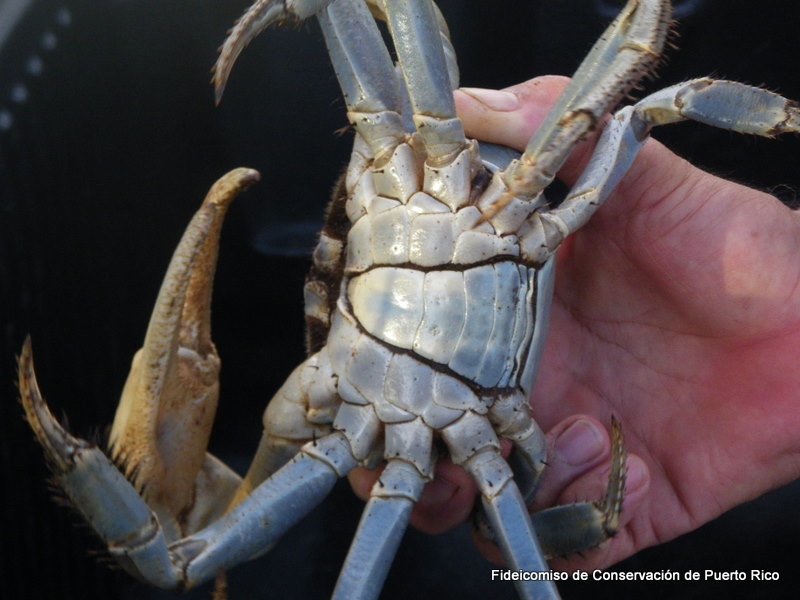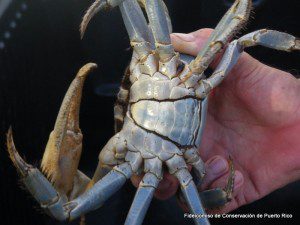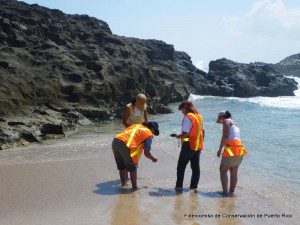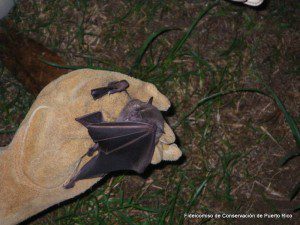
05 Oct EARTH MATTERS: CITIZEN SCIENCE
This week, I attended the Land Trust Alliance’s annual Rally to moderate a panel on ecosystem based management, ocean use planning, and conservation. While there, I got the chance to see several other presentations, including one about an impressive program in Puerto Rico, where a land trust is working with volunteers on a range of citizen science projects.
For a long time, the public has had an image of “Science” as the exclusive domain of pointy-headed men in lab coats. Increasingly, though, people are realizing that science is much more inclusive – and pervasive – than that. One definition of “science” describes it as “systematic knowledge of the physical or material world gained through observation and experimentation.” We all observe constantly, and often strive to understand things systematically, often by experimentation. By this definition, it becomes clear that science, far from being an exclusive realm for the few, is simply systematic inquiry open to many. We can all contribute.
Indeed, in a time of global change and uncertainty, it is even more important that science become more inclusive, open, and transparent. Knowledge can come from many different places, both inside and outside the laboratory. And lay citizens can be intimately involved in doing science through “citizen science projects.” The Cornell Lab of Ornithology, which has a long-running citizen science center, describes citizen science as engagement by trained scientists and lay citizens “in which volunteers partner with scientists to answer real-world questions.”
 The Conservation Trust of Puerto Rico has embraced citizen science as a way to answer conservation and management questions related to lands they hold in trust and on the island more broadly, such as how to address endangered species and migratory bird habitats, as well as how to prioritize land for conservation. By involving citizens, from elementary schoolchildren to 80-year-old retirees in conservation science, they are doing more than just providing a volunteer force for academic scientists trying to do projects that involve collection of large amounts of data (where an individual, or small group of individuals, could not possibly collect the data needed in a reasonable time period), although that is part of the benefit. They are also helping instill, encourage, and develop an understanding and love of both nature and the scientific process in the citizenry.
The Conservation Trust of Puerto Rico has embraced citizen science as a way to answer conservation and management questions related to lands they hold in trust and on the island more broadly, such as how to address endangered species and migratory bird habitats, as well as how to prioritize land for conservation. By involving citizens, from elementary schoolchildren to 80-year-old retirees in conservation science, they are doing more than just providing a volunteer force for academic scientists trying to do projects that involve collection of large amounts of data (where an individual, or small group of individuals, could not possibly collect the data needed in a reasonable time period), although that is part of the benefit. They are also helping instill, encourage, and develop an understanding and love of both nature and the scientific process in the citizenry.
Citizens can be involved with all aspects of science, from determining which questions to ask, to collecting data, to analyzing data, to disseminating results throughout their communities. The first round of projects included research done at at the Hacienda la Esperanza Nature reserve on the ecology and population of coastal land crabs, human history and culture, seed dispersal by bats, bird habitat studies, shoreline and coastal processes, and a review of flora on the reserve. One of the best parts of the project – which has recently been approved for a second round of funding – is how it has inspired both the academic scientists and lay citizens who have participated. One participant was inspired to do a more thorough study of different crabs throughout the island and to document them in a book. Another participant said that his participation led him to a focus for his studies. And the academic researchers came away with an understanding that citizen science can make an important contribution to the scientific effort.
Much more information about the projects, as well as a how-to guide for other groups interested in developing citizen science projects, is available at http://ciudadanocientifico.org, and in an evaluation of the project at http://informalscience.org/evaluation/show/317.


Sorry, the comment form is closed at this time.